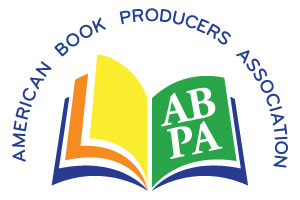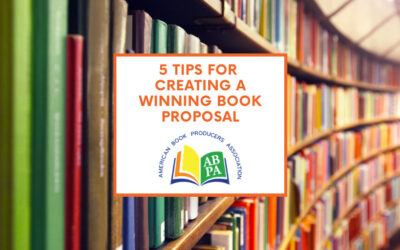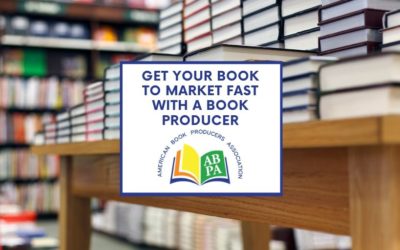
Creative License
Book packagers are a uniquely creative lot. They are often tasked with developing titles from the original concept to the final product, overseeing all stages of production in between. However, sometimes a preexisting brand, character, or franchise can help kickstart a book project and even lead to a series or opportunities to produce “book-adjacent” materials such as journals or calendars. This is the realm of licensed publishing. Working with licensors, book packagers can open up a whole new world of possibilities.

Coming in with a Vision
ABPA member Brooke Vitale is a children’s book editor with over 15 years’ experience at some of the world’s top publishing companies, including Penguin Random House and Disney. She spent 10 years on the editorial side of licensed publishing, meeting with book producers to evaluate potential projects. Some of the licensed book-plus packages she has overseen include Hide-and-Hug Olaf (book + plush); Disney Princess Book and Doll sets (book + doll); Read Play Imagine Create Tins; and Disney Princess/Marvel/Star Wars Character Boxes (done through Small World Packagers).
“Licensed publishing means books that are tied to a brand, usually a toy, a television show, or a movie,” she explains. She divides these books into two general categories:
- Books that are tied to a movie or TV show release. These books are usually fairly straightforward retellings: novels, chapter books, or readers.
- Books that are tied to longer-lasting brands: TV shows that have gone on for many years successfully, or more likely movies or toys with staying power (think Disney, Marvel, Star Wars, or Barbie franchises).
Licensed publishing is a very fertile world for packagers. “Because so many books are published against [high-profile] licenses, editors are always looking for new and exciting ideas and formats to publish into,” Brooke says. “As editors, we only have so many ideas, so we count on packagers to come to us with new ideas that we can adapt to our brands.”
Packagers who are interested in connecting with licensors should find out what editors are printing licensed products and start setting up meetings. “Come in with visions for how your format can be applied to our properties,” Brooke advises. Mockups and dummies are helpful: editors (and their sales teams) “like to feel things before we make a decision.”
Brooke notes that publishers may not always be able to publish licensed properties in every format, and their rights might be format based or price based. Try to learn what rights a publisher has before you go into a meeting. This will save you time in presenting and help better tailor your projects to editors.
Ways of Collaboration
Jim Buckley is an ABPA member and the president of Shoreline Publishing Group. He has lots of experience working with licensors, from professional sports organizations like Major League Soccer and the NFL to comic book and graphic novel publishers. He suggests two ways of collaborating with licensors:
- Find a brand that has content that interests you or inspires a project—anything from a restaurant to a film franchise to a professional organization—and approach them with your idea; let them know book publication can help grow their brand.
- As noted by Brooke, get hired by a publisher to produce books for a license they already have. Packagers can produce books as work-for-hire to help the publisher pay off the license.
Jim reminds packagers that, in the field of licensed publishing, they will be “serving three masters: the reader, the licensor, and the publisher (which is also the licensee!).” Packagers should “build a purpose with a brand.” Coming to a publisher with a brand already signed up in hand gives you more clout and “‘slices of the pie,’ as the great Jim Becker once told me.” So packagers can help their cause by finding a company or brand that hasn’t previously done a book; they may be more willing to collaborate than big-name brands that have published licensed material already.
Licensed books will usually be vetted by both the licensor and the publisher. In the end, the book must serve the brand’s platform. “The licensor has to be the most important person in the room,” Jim says. This may mean subsuming your own text and design choices to those of the brand. As Brooke states, “Writing for licensed properties differs from other kinds of writing simply because you are not creating your own characters. You need to stay true to the character that has been created and the guidelines set out by the brand.”
Providing a Service
A good example of a packager reaching out to bring a new brand to publishing comes from ABPA member Dinah Dunn. Her first licensing collaboration with her packaging firm, Indelible Editions, is with the legendary website Mental Floss. Dinah and her team were long-time fans of the brand, which hadn’t done much in the way of book publishing recently. She got in touch with Mental Floss to explain how they might use their huge trove of archival materials as the basis for books. She was able to link up with publisher Weldon Owen to produce two books, then sold rights to a series of calendars to publisher Andrews McMeel. The first calendar, “Amazing Facts 2021,” has already sold out at Barnes & Noble and Amazon.
Indelible Editions will also be working with Weldon Owen to produce Mental Floss–themed ancillary products based on the first book in the series, The Curious Reader. These products will include a journal, and potentially literary merchandise such as bookmarks and bookplates.
In contacting licensors with pitches, Dinah advises packagers to “go with a clear idea of the project” and always provide one fully designed spread specific to the project. She also advises that packagers explain to licensors and publishers the many time-saving services they can provide. In addition to creating books on time and within budget, these services include overseeing the licensor’s approval of a book so that the publisher doesn’t have to worry about it. Packagers can be a “conduit” between the licensor and the publisher and simplify the production process for everyone.
Pricing and Economics
One thing that all of our packagers mentioned is the economics of licensed products. “Pricing is key,” Brooke says. “Editors won’t go to a producer for a book they can produce in-house, so come up with innovative ideas, and make the pricing work! Come in with a breakdown of where all costs come from so editors can see if there’s an element they would cut that will help achieve pricing. And if you can, come in with pricing ready to go.”
Jim’s experience is that it is sometimes difficult to have three parties involved (i.e., the packager, the publisher, and the licensor). Packagers will almost always have to split revenue proceeds with licensors, and the licensor generally gets the “lion’s share” of royalties. Jim suggests that packagers account for this when budgeting licensed projects. If you are forced to take less in royalties, build profit into your production fees.
Conclusion: Creating Opportunities
The world of licensed properties holds great potential for book packagers. Look around for companies, franchises, or organizations that might want a branding opportunity and offer to collaborate with them on a book. Listen to their needs and goals, and emphasize that books are a great way to publicize their brand and offer their customers a unique product. Research publishers with licensed properties and imagine new ways to interpret them for readers. Whichever path you take, remember that you are offering brands a chance to grow their audience and further define themselves in the marketplace. For packagers, publishers, and licensors, opportunities abound!
Read more from the ABPA
Book Producers Make Great Gifts
Creating Seasonal Titles With the holiday season fast approaching, many publishers and producers are busy creating appropriate books for readers everywhere. Whether these books celebrate a particular holiday, introduce new traditions that bring people together,...
5 Tips for Creating a Winning Book Proposal
The American Book Producers Association boasts hundreds of years of collective experience in the publishing industry and more bestselling books over the years than we can recount. In our recent Master Class: How to Pitch Your Project Remotely, Jim Buckley of...
Get Your Book to Market FAST with a Book Producer
Working with a book producer from the American Book Producers Association gives you fast turnaround time on exceptional quality books. Whether looking to fill gaps in next season’s list or seeking to leverage the success of a recent book with spinoffs, most...



